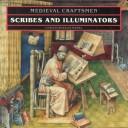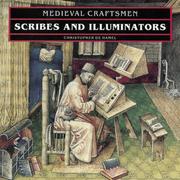| Listing 1 - 10 of 26 | << page >> |
Sort by
|
Book
ISBN: 0674065328 0674068726 9780674068728 9780674065321 9780674062085 0674062086 Year: 2012 Publisher: Cambridge, MA
Abstract | Keywords | Export | Availability | Bookmark
 Loading...
Loading...Choose an application
- Reference Manager
- EndNote
- RefWorks (Direct export to RefWorks)
A decade ago in the Times Literary Supplement, Roderick Conway Morris claimed that "almost everything that was going to happen in book publishing-from pocket books, instant books and pirated books, to the concept of author's copyright, company mergers, and remainders-occurred during the early days of printing." Ian Maclean's colorful survey of the flourishing learned book trade of the late Renaissance brings this assertion to life. The story he tells covers most of Europe, with Frankfurt and its Fair as the hub of intellectual exchanges among scholars and of commercial dealings among publishers. The three major religious confessions jostled for position there, and this rivalry affected nearly all aspects of learning. Few scholars were exempt from religious or financial pressures. Maclean's chosen example is the literary agent and representative of international Calvinism, Melchior Goldast von Haiminsfeld, whose activities included opportunistic involvement in the political disputes of the day. Maclean surveys the predicament of underfunded authors, the activities of greedy publishing entrepreneurs, the fitful interventions of regimes of censorship and licensing, and the struggles faced by sellers and buyers to achieve their ends in an increasingly overheated market. The story ends with an account of the dramatic decline of the scholarly book trade in the 1620's, and the connivance of humanist scholars in the values of the commercial world through which they aspired to international recognition. Their fate invites comparison with today's writers of learned books, as they too come to terms with new technologies and changing academic environments.
Scholarly publishing --- Book industries and trade --- Communication in learning and scholarship --- Communication in scholarship --- Scholarly communication --- Learning and scholarship --- Book trade --- Cultural industries --- Manufacturing industries --- Academic publishing --- Publishers and publishing --- History --- Scholarly publishing - Europe - History - 16th century --- Scholarly publishing - Europe - History - 17th century --- Book industries and trade - Europe - History - 16th century --- Book industries and trade - Europe - History - 17th century --- Communication in learning and scholarship - Europe - History - 16th century --- Communication in learning and scholarship - Europe - History - 17th century
Multi
ISBN: 9781108428323 1108428320 9781108584265 9781108449335 1108449336 1108698786 110860045X 1108584268 Year: 2018 Publisher: Cambridge: Cambridge university press,
Abstract | Keywords | Export | Availability | Bookmark
 Loading...
Loading...Choose an application
- Reference Manager
- EndNote
- RefWorks (Direct export to RefWorks)
"When does a book that is merely old become a rarity and an object of desire? David McKitterick examines, for the first time, the development of the idea of rare books, and why they matter. Studying examples from across Europe, he explores how this idea took shape in the sixteenth and seventeenth centuries, and how collectors, the book trade and libraries gradually came together to identify canons that often remain the same today. In a world that many people found to be over-supplied with books, the invention of rare books was a process of selection. As books are one of the principal means of memory, this process also created particular kinds of remembering. Taking a European perspective, McKitterick looks at these interests as they developed from being matters of largely private concern and curiosity, to the larger public and national responsibilities of the first half of the nineteenth century"--
Book history --- book history --- rare books --- anno 1700-1799 --- anno 1800-1899 --- anno 1600-1699 --- 025.17 --- 02 <09> --- 02 <09> Bibliotheekwezen:--algemene geschiedenis --- Bibliotheekwezen:--algemene geschiedenis --- 025.17 Bibliotheekbeheer: speciale collecties --- Bibliotheekbeheer: speciale collecties --- Boekgeschiedenis --- zeldzame boeken --- boekgeschiedenis --- Rare books --- Book collecting --- Book collectors --- Libraries --- Book industries and trade --- History --- Bibliography --- Methodology --- reading culture --- Rare books - Europe - History --- Rare books - Europe - Bibliography - Methodology - History --- Book collecting - Europe - History --- Book collectors - Europe - History --- Libraries - Europe - History --- Book industries and trade - Europe - History - 17th century --- Book industries and trade - Europe - History - 18th century --- Book industries and trade - Europe - History - 19th century --- History. --- Book trade --- Cultural industries --- Manufacturing industries --- Documentation --- Public institutions --- Librarians --- Book owners --- Books --- Book selection --- Collectors and collecting --- Private libraries --- Bibliophily --- Antiquarian booksellers --- Bibliomania --- Book rarities --- Rare library materials
Book
ISBN: 9782600018364 2600018360 Year: 2015 Volume: 549 1 Publisher: Genève: Droz,
Abstract | Keywords | Export | Availability | Bookmark
 Loading...
Loading...Choose an application
- Reference Manager
- EndNote
- RefWorks (Direct export to RefWorks)
La série De lingua et linguis analyse différents «laboratoires» dans lesquels les langues vernaculaires européennes, au début de l’époque moderne, s’élaborent, s’unifient, se normalisent, se développent, s’érigent en langues d’art. Le premier volume est consacré au «laboratoire» que constituent les ateliers d’imprimeurs et les boutiques de libraires en Allemagne, France et Italie, aux Pays-Bas, au Portugal et en Espagne. Si dans un premier temps l’intérêt que portent les imprimeurs et les libraires aux langues vernaculaires obéit essentiellement à des considérations techniques et économiques, il répond ensuite à des réflexions d’ordre esthétique, au désir de contribuer, par la publication de traductions et d’ouvrages en langues étrangères, à une véritable culture vernaculaire, au souci de confronter activement les langues vernaculaires entre elles comme avec le latin. La démarche adoptée par ce volume permet, en les replaçant dans un contexte européen, de saisir des évolutions qui avaient jusqu’à présent été analysées essentiellement dans une perspective nationale, et de mieux comprendre les particularités propres à chaque espace linguistique.
Book history --- Linguistics --- anno 1500-1599 --- Linguistic change --- Printing --- Book industries and trade --- Native language and education. --- Changement linguistique --- Imprimerie --- Livres --- Langue maternelle et éducation --- History --- History. --- Histoire --- Industrie --- Europe --- Intellectual life. --- Vie intellectuelle --- Langues vivantes --- Traduction --- Imprimeurs --- Libraires --- Industrie et commerce --- Renaissance --- Languages --- book history --- Langue maternelle et éducation --- booksellers --- publishers --- printers [people] --- Linguistic change - Europe --- Printing - Europe - History - 16th century --- Printing - Europe - History - 17th century --- Book industries and trade - Europe - History - 16th century --- Book industries and trade - Europe - History - 17th century --- Europe - Languages - History - 16th century --- Europe - Languages - History - 17th century --- booksellers [people]
Book
ISBN: 8885669751 9788885669758 Year: 1999 Volume: 14 Publisher: Roma: Viella,
Abstract | Keywords | Export | Availability | Bookmark
 Loading...
Loading...Choose an application
- Reference Manager
- EndNote
- RefWorks (Direct export to RefWorks)
Manuscripts, Medieval. --- Books --- Book industries and trade --- History --- 091.14 --- Codicologie. Codices. Scriptoria --- 091.14 Codicologie. Codices. Scriptoria --- Manuscripts, Medieval --- Medieval manuscripts --- Manuscripts --- Early printed books --- Incunabula --- Book trade --- Cultural industries --- Manufacturing industries --- Books - History - 1450-1600. --- Book industries and trade - Europe - History - To 1500. --- Manuscrits --- Histoire du livre --- Technologie --- Moyen age

ISBN: 0802077072 9780802077073 Year: 2002 Publisher: Toronto: University of Toronto press,
Abstract | Keywords | Export | Availability | Bookmark
 Loading...
Loading...Choose an application
- Reference Manager
- EndNote
- RefWorks (Direct export to RefWorks)
Book industries and trade --- Illumination of books and manuscripts, Medieval. --- History --- Illumination of books and manuscripts, Medieval --- Books --- Manuscripts, Medieval --- Book industries and trade - Europe - History --- Books - History - 400-1400 --- Histoire du livre --- Enluminure medievale --- Manuscrits medievaux --- Livres --- Moyen age --- Industrie et commerce --- Histoire

ISBN: 0714120499 Year: 1992 Publisher: London : British Museum press,
Abstract | Keywords | Export | Availability | Bookmark
 Loading...
Loading...Choose an application
- Reference Manager
- EndNote
- RefWorks (Direct export to RefWorks)
Manuscripts. Epigraphy. Paleography --- Painting --- anno 500-1499 --- Copistes --- Copyists --- Kopiisten --- Miniature painters --- Miniaturistes --- Miniaturists --- Miniatuurschilders --- Painters [Miniature] --- Peintres de miniatures --- 091.31:75.056 --- Verluchte handschriften: techniek --- 091.31:75.056 Verluchte handschriften: techniek --- Books --- Illumination of books and manuscripts --- Manuscripts --- Livres --- Enluminure --- Manuscrits --- History --- Histoire --- Illumination of books and manuscripts [Medieval ] --- Book industries and trade - Europe - History. --- History.
Book
ISSN: 18744834 ISBN: 9789004288102 9004288104 9004290222 9789004288104 Year: 2015 Volume: 40 31 Publisher: Leiden: Brill,
Abstract | Keywords | Export | Availability | Bookmark
 Loading...
Loading...Choose an application
- Reference Manager
- EndNote
- RefWorks (Direct export to RefWorks)
Specialist Markets in the Early Modern Book World , edited by Richard Kirwan and Sophie Mullins, investigates an underexplored yet important facet of early modern book production. Bringing together 19 detailed case studies, this volume considers and reconstructs the characteristics of specialist book production in the early modern period. In particular it explores the motives that led to specialisation ranging from the desire for profit on the part of risk-taking, entrepreneurial individuals or family firms to the more propagandist or missionising aims of corporate groups who subsidised production, often without regard for profit. The book also explores the economic and personal pressures and perils that accompanied specialist production, which was often a risk-laden enterprise that could end in financial and social ruin.
Book history
---
History of Europe
---
anno 1500-1799
---
anno 1400-1499
---
094.1 <4>
---
655.42 <4>
---
Oude drukken: bibliografie--
Book
ISSN: 18744834 ISBN: 9789004175501 9004175504 Year: 2009 Volume: 9 6 Publisher: Leiden: Brill,
Abstract | Keywords | Export | Availability | Bookmark
 Loading...
Loading...Choose an application
- Reference Manager
- EndNote
- RefWorks (Direct export to RefWorks)
This collection of essays examines the operation of the market for learned books in Early Modern Europe through a series of case studies. After an overview of general market conditions, issues raised by the transmission of knowledge and the economics of the book trade are addressed. These include the selection of copy, the role of legal and religious controls in the production and diffusion of texts, the paths open to authors to achieve publication, the finances and interaction of publishing houses, the margins of the European book trade in England and Portugal, and the development of bibliographical tools to assist purchasers in their pursuit of scholarly works.
09 <081 MACLEAN, IAN> --- Handschriften. Oude en merkwaardige drukken. Curiosa--Verzameld werk van individuele auteurs--MACLEAN, IAN> --- printers [people] --- bibliographers --- bookselling --- Book industries and trade --- Communication in learning and scholarship --- Publishers and publishing --- Book publishing --- Books --- Booksellers and bookselling --- Book trade --- Cultural industries --- Manufacturing industries --- Communication in scholarship --- Scholarly communication --- Learning and scholarship --- History --- Publishing --- Book history --- book history --- anno 1600-1699 --- anno 1500-1599 --- Europe --- Book industries and trade - Europe - History - 16th century --- Book industries and trade - Europe - History - 17th century --- Publishers and publishing - Europe - History - 16th century --- Publishers and publishing - Europe - History - 17th century --- Communication in learning and scholarship - Europe - History - 16th century --- Communication in learning and scholarship - Europe - History - 17th century --- geschiedenis van de wetenschappen

ISBN: 094047459X 0940474603 9780940474598 9780940474604 Year: 1998 Volume: 50 Publisher: [Kirksville (Miss.)]: Thomas Jefferson University Press,
Abstract | Keywords | Export | Availability | Bookmark
 Loading...
Loading...Choose an application
- Reference Manager
- EndNote
- RefWorks (Direct export to RefWorks)
Book industries and trade --- History --- Europe --- Intellectual life --- 09 <082 SCHNUCKER, ROBERT V.> --- Handschriften. Oude en merkwaardige drukken. Curiosa--Feestbundels. Festschriften--SCHNUCKER, ROBERT V. --- Festschrift - Libri Amicorum --- 09 <082 SCHNUCKER, ROBERT V.> Handschriften. Oude en merkwaardige drukken. Curiosa--Feestbundels. Festschriften--SCHNUCKER, ROBERT V. --- Book trade --- Cultural industries --- Manufacturing industries --- Handschriften. Oude en merkwaardige drukken. Curiosa--Feestbundels. Festschriften--SCHNUCKER, ROBERT V --- Council of Europe countries --- Eastern Hemisphere --- Eurasia --- Book history --- anno 1500-1599 --- Book industries and trade - Europe - History - 16th century --- Europe - Intellectual life - 16th century
Book
ISBN: 9782753581302 2753581304 Year: 2020 Publisher: Rennes: Presses universitaires de Rennes,
Abstract | Keywords | Export | Availability | Bookmark
 Loading...
Loading...Choose an application
- Reference Manager
- EndNote
- RefWorks (Direct export to RefWorks)
L'invention et le développement de l'imprimerie en Europe révolutionnèrent l'accès au texte. La vaste quantité de livres devenus disponibles au cours des dernières décennies du XVe siècle eut un impact profond sur l'ensemble de la société. Un véritable changement de paradigme eut lieu dans la sphère religieuse comme dans le domaine du politique et de la manière de gouverner. Cet essai de synthèse renouvelle la compréhension des enjeux de l'imprimé de la première modernité. A partir des travaux français et internationaux les plus récents et des abondantes recherches de l'auteur, il donne les clefs pour appréhender ce médium en examinant en trois temps le monde de l'imprimé. Cet ouvrage souligne que l'imprimé était d'abord un objet et une marchandise : produit dans les ateliers des imprimeurs, il était commandité, distribué puis vendu dans des échoppes et étals dispersés à travers l'Europe, avant d'être lu et collectionné. La nouvelle technologie se révéla également être un outil au service des pouvoirs traditionnels séculiers et religieux, autant qu'aux mains des mouvements de contestation et d'opposition comme la Réforme. Enfin, les imprimés véhiculaient des textes qui jouèrent un rôle considérable dans la diffusion du savoir, dans les loisirs et divertissements des femmes et des hommes, ainsi que dans la circulation des informations et des polémiques qui animèrent cette période. En présentant le livre et ses enjeux sous un jour nouveau, cette étude cherche à placer l'histoire de l'imprimé au coeur de l'histoire générale des XVe, XVIe et XVIIe siècles.
Book history
---
anno 1400-1499
---
anno 1500-1599
---
anno 1600-1699
---
Book industries and trade
---
Printing
---
History
---
Books and reading
---
History.
---
Influence.
---
Western Europe
---
Imprimerie
---
Livres
---
Histoire
---
Origines et antécédents.
---
Origin and antecedents
---
Industrie et commerce
---
094.1 <4>
---
094 "14/16"
---
094.1 <4> Oude drukken: bibliografie--
| Listing 1 - 10 of 26 | << page >> |
Sort by
|

 Search
Search Feedback
Feedback About UniCat
About UniCat  Help
Help News
News